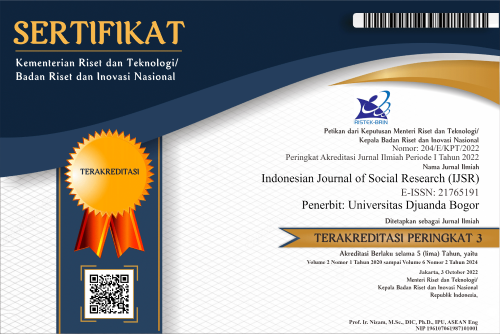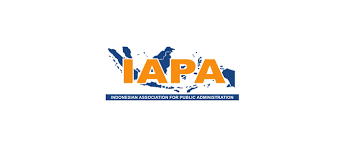Exploring Multifaceted Expectations from Teachers: An Analysis From Guardians’ and Students’ Perspective
Abstract
The teachers' role extends beyond academics, including sharing knowledge and imparting moral values and ethics to students. However, guardians and students have multi-dimensional expectations from their teachers, encompassing several facts and figures. Considering the context, this study investigates those multifaceted expectations aiming to bridge the gap and propose measures for enhancing the teachers' ability to meet the expectations of guardians and students. This study has collected data through a structured questionnaire survey. The sample population of this study includes guardians, students, and teachers from primary to tertiary education levels. A total of 384 samples were selected from unknown populations. A descriptive statistical technique (percentage analysis) was applied to identify patterns and trends in the quantitative data. This study finds that the expectations of guardians and students emphasize the teacher’s role as a good human being, guide, and role model. Skills for motivation, thirst for knowledge, empathy, and communication are considered the necessary qualities for an ideal teacher. Moreover, respondents argue that effective teacher-student relationships depend on fairness, openness, accessibility, and compassion. They emphasize enhancing teachers' humility, neutrality, clear communication, and ability to realize the expectations of students. The study recommends measures that may help teachers meet the intricate expectations of guardians and students, such as providing training, opportunities for higher education, ensuring academic support, teacher autonomy and flexibility, and depoliticizing educational institutions. It concludes that enhanced support and teacher training are vital in meeting the complex expectations of guardians and students. The findings of this study contribute to the enhancement of teaching-learning practices and the delivery of quality education
References
Ahmed, M. (2020). World Teachers’ Day: Time to rethink teaching to salvage our education. The Daily Star. https://www.thedailystar.net/opinion/education/news/world-teachers-day-time-rethink-teaching-salvage-our-education-1972429
Anwar, S. H., & Ijie, H. S. (2023). Teacher’s Role as Motivator in the Development of Students at Neglasari Cipare Primary School, Serang, Indonesia. Community Medicine and Education Journal, 4(2), 293–298.
Azer, S. A. (2005). The qualities of a good teacher: How can they be acquired and sustained? Journal of the Royal Society of Medicine, 98(2), 67–69.
Bain, K. (2004). What the best college teachers do. Harvard University Press.
Benekos, P. J. (2016). How to be a Good Teacher: Passion, Person, and Pedagogy. Taylor & Francis, 27(2), 225–237.
Bergmann, J., & Sams, A. (2012). Flip your classroom: Reach every student in every class every day. International society for technology in education.
Bhattacharjee, M. (2021). What is the Role of a Teacher in a Student’s Life? https://www.edumilestones.com/blog/details/Role-of-a-Teacher-in-a-Students-Life-
Burgess, D. (2012). Teach like a pirate. Dave Burgess Consulting, Incorporated.
Cahyanti, A. D., Purwoko, B., Khamidi, A., Hariyati, N., & Roesminingsih, E. (2024). Fostering Student Motivation Through Teacher Competence. EDUKASIA: Jurnal Pendidikan Dan Pembelajaran, 5(1), 751–758.
Danijela, M. (2018). The teacher’s role and professional development. International Journal of Cognitive Research in Science, Engineering and Education (IJCRSEE), 6(2), 33–45.
Dar, A. (2022). Effect of Teacher’s Behaviour on Student’s Academic Performance and Personality. Global Scientific Journals, 10(10), 2491–2508.
Ferlazzo, L. (2013). Self-driven learning: Teaching strategies for student motivation. Routledge.
Ferlazzo, L. (2015). Strategies for helping students motivate themselves. Retrieved October, 6, 2016.
Gasimova, A. (2023). THE IMPORTANCE OF MORAL VALUES EDUCATION IN TEACHER TRAINING. Collection of Scientific Papers «ΛΌГOΣ», March 31, 2023; Zurich, Switzerland, 149–151.
Hamza, S., Kwalli, M., & Danlami, A. (2010). The characteristics of a good teacher and how to become one. Chemsearch Journal, 1(1), 48–51.
Impact Teacher. (2023). Tips to build a Positive Classroom Culture. Impact Teachers. https://impactteachers.com/blog/cultivating-respect-and-empathy-building-a-positive-classroom-culture/
Jacobs, G. M., & Lie, A. (2022). Toward Student-Centered Teacher Education Programs. Journal of International and Comparative Education (JICE), 93–105.
Johnson, D. (2017). The Role of Teachers in Motivating Students to Learn. BU Journal of Graduate Studies in Education, 9(1), 46–49.
Kaur, S. (2019). Role of a teacher in student learning process. International Journal of Business and Management Invention (IJBMI), 8(12), 41–45.
Maiers, A. (2012). Classroom habitudes: Teaching habits and attitudes for 21st century learning. Solution Tree Press.
Manju, G. (2018). TEACHERS ARE THE ROLE MODELS TO STUDENTS. 6(1).
Mursaleen, M., Sohail, S., & Jabeen, S. (2022). QUALITIES OF A GOOD TEACHER: FROM STUDENTS’PERSPECTIVES. Pakistan Journal of Educational Research, 5(4).
Mustary, M. (2020a). Impact of teacher-student relationship on students’ academic performance at the secondary school level in Dhaka City. International Journal of Psychosocial Rehabilitation, 24(08), 2939–2957.
Mustary, M. (2020b). Impact of teacher-student relationship on students’ academic performance at the secondary school level in Dhaka City. International Journal of Psychosocial Rehabilitation, 24(08), 2939–2957.
Rahayu, W., Tazkiyah, E., Murtadho, N., & Arifin, S. (2023). The Role of Teacher Ethics in Developing Student Character in School. Jurnal Ilmiah Sekolah Dasar, 7(3).
Ritchhart, R., Church, M., & Morrison, K. (2011). Making thinking visible: How to promote engagement, understanding, and independence for all learners. John Wiley & Sons.
Shete, A., Shete, A., Dube, S., & Dubewar, A. (2020). Sample size calculation in bio statistics with special reference to unknown population. Int. J. Innov. Res. Multidiscip. Field, 6, 236–238.
Sumo, M., & Koryataini, L. (2023). Peran Guru dalam Membangun Etika Peserta Didik. Al-Abshar: Journal of Islamic Education Management, 2(1), 119–141.
Teshaboev, M., & Karimov, U. (2022). The Role Of Ethical Education In Increasing The Efficiency Of Education. Oriental Journal of Social Sciences, 2(02), 32–43.
Tirri, K. (2023). The moral teacher in global transition: The 2022 Kohlberg Memorial Lecture. Journal of Moral Education, 52(3), 261–274.
Voynova, R. (2017). Teacher-student relationship and its impact on students’ desire for knowledge. New Trends and Issues Proceedings on Humanities and Social Sciences, 4(1), 278–284.
Copyright (c) 2024 Indonesian Journal of Social Research (IJSR)

This work is licensed under a Creative Commons Attribution-ShareAlike 4.0 International License.
The Authors submitting a manuscript do so on the understanding that if accepted for publication, copyright publishing of the article shall be assigned/transferred to Indonesian Journal of Social Research (IJSR) Universitas Djuanda as Publisher of the journal. Upon acceptance of an article, authors will be asked to complete a 'Copyright Transfer Agreement'. An e-mail will be sent to the corresponding author confirming receipt of the manuscript together with a 'Copyright Transfer Agreement' form by online version of this agreement.
Indonesian Journal of Social Research (IJSR) Universitas Djuanda, the Editors and the Editorial Board make every effort to ensure that no wrong or misleading data, opinions or statements be published in the journal. In any way, the contents of the articles and advertisements published in the Indonesian Journal of Social Research (IJSR) Universitas Djuanda are sole and exclusive responsibility of their respective authors and advertisers.
Remember, even though we ask for a transfer of copyright, our journal authors retain (or are granted back) significant scholarly rights as mention before.
The Copyright Transfer Agreement (CTA) Form can be downloaded here: Copyright Transfer Agreement-IJSR 2020
The copyright form should be signed electronically and send to the Editorial Office e-mail below:
Dr. Rasmitadila, M.Pd (Editor-in-Chief)
Universitas Djuanda
Jl. Tol Jagorawi No.1, Ciawi, Kec. Ciawi, Bogor, Jawa Barat 16720
Website: http://journal.unida.ac.id/index.php/IJSR/index
Email: ijsr@unida.ac.id





4.png)



